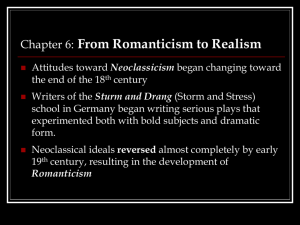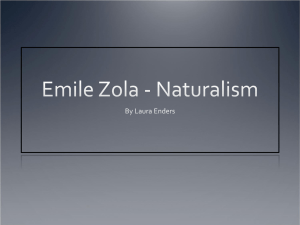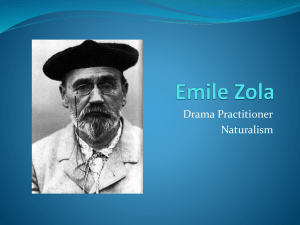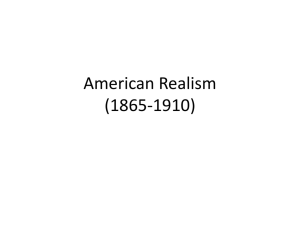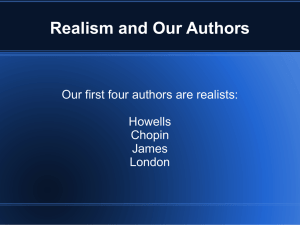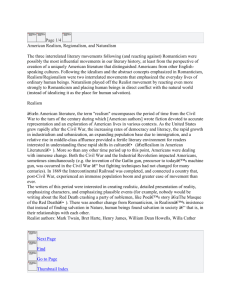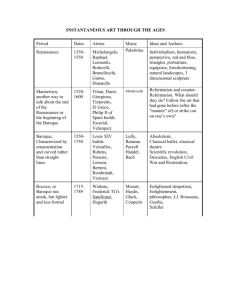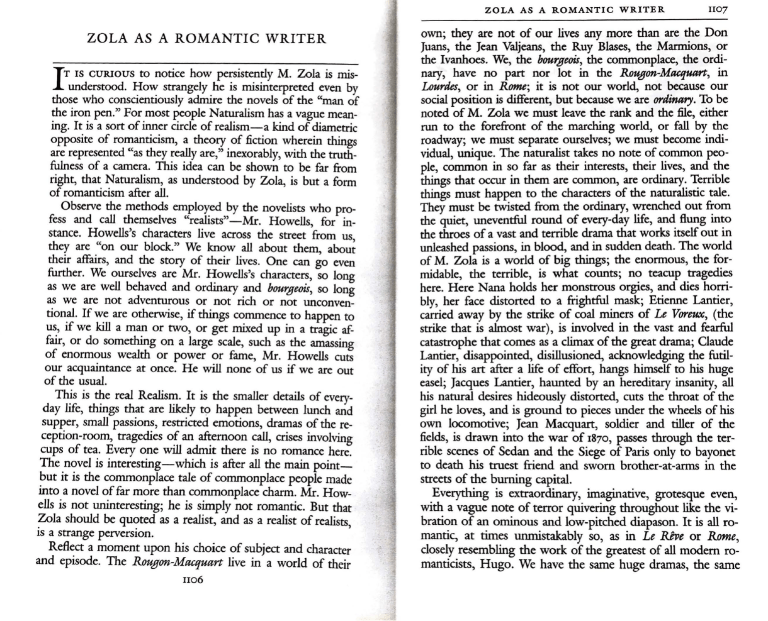
ZOLA AS A ROMANTIC WRITER ZOLA AS A ROMANTIC WRITER I curuous to notice how persistently M. Zola is misunderstood. How strangely he is misinterpreted even by those who conscientiously admire the novels of the "man of the iron pen." For most people Naturalism has a vague meaning. It is a sort of inner cirde of realism-a kind of diametric opposite of romanticism, a theory of fiction wherein things are represented "as they really are," inexorably, with the truthfulness of a camera. This idea can be shown to be far from right, that Naturalism, as understood by Zola, is but a form of romanticism after all. Observe the methods employed by the novelists who profess and call themselves "realists" -Mr. Howells, for instance. Howells's characters live across the street from us , they are "on our block." We know all about them, about their affairs, and the story of their lives. One can go even further. We ourselves are Mr. Howells's characters, so long as we are well behaved and ordinary and bour;geois, so long as we are not adventurous or not rich or not unconvention_al. If w_e are otherwise, if things commence to happen to ~, if we kili a m~ or two, or get mixed up in a tragic affa.tr, or do something on a large scale, such as the amassing of enormous wealth or power or fame, Mr. Howells cuts our acquaintance at once. He will none of us if we are out of the usual. This is the real Realism. It is the smaller details of everyday life, things that are likely to happen between lunch and supper, small passions, restricted emotions, dramas of the reception-room, tragedies of an afternoon call, crises involving cups of tea. Every one will admit there is no romance here. The novel is interesting-which is after all the main pointbut it is the commonplace tale of commonplace people made into a novel of far more than commonplace charm. Mr. Howells is not uninteresting; he is simply not romantic. But that Zola should be quoted as a realist, and as a realist of realists, . . 1s a strange pervers1on. Reflect a moment upon his choice of subject and character and episode. The Rougon-Macquart live in a world of their T IS IIOÓ II07 own; they are not of our lives any more than are the Don Juans, the Jean Valjeans, the Ruy Blases, the Marmions, or the Ivanhoes. We, the bour;geois, the commonplace, thc ordinary, have no part nor lot in the R.ougon-Macquart, in Lourdes, or in Rtmze; it is not our world, not because our social position is different, but because wc are ordinary. To be noted of M. Zola we must leave the rank and the file, either run to the forefront of the marching world, or fall by the roadway; we must separare ourselves; we must become individual, unique. The naturalist takes no note of common people, common in so far as their interests, their lives, and the things that occur in them are common, are ordinary. Terrible things must happen to the characters of the naturalistic tale. They must be twisted from the ordinary, wrenched out from the quiet, uneventful round of every-day life, and flung into the throes of a vast and terrible drama that works itself out in unleashed passions, in blood, and in sudden death. Toe world of M. Zola is a world of big things; the enormous, thc formidable, the terrible, is what counts; no teacup tragedies here. Here Nana holds her monstrous orgies, and dies horribly, her face distorted to a frightful mask; Etienne Lantier, carried away by the strike of coa! miners of Le Voreux, (the strike that is almost war), is involved in the vast and fearful catastrophe that comes as a clímax of the great drama; Claude Lantier, disappointed, disillusioned, acknowledging the futility of his art after a life of effort, hangs himself to his huge easel; Jacques Lantier, haunted by an hereditary insanity, all his natural desires hideously distorted, cuts the throat of the girl he loves, and is ground to pieces under the wheels of his own locomotive; Jean Macquart, soldier and tiller of the fields, is drawn into the war of 1870, passes through the terrible scenes of Sedan and the Siege of Paris only to bayonet to death his truest friend and swom brother-at-arms in the streets of the buming capital. Everything is extraordinary, imaginative, grotesque even, with a vague note of terror quivering throughout like the vibration of an ominous and low-pitched diapason. It is all romantic, at times unmistakably so, as in Le Rhe or Rome, closely resembling the work of the greatest of all modem romanticists, Hugo. We have the same huge dramas, the same II08 ESSAYS enormous scenic effects, the same love of the extraordinary, the vast, the monstrous, and the tragic. Naturalism is a form of romanticism, not an inner circle of realism. Where is the realism in the Rougon-Macquart? Are such things likely to happen between lunch and supper? That Zola's work is not purely romantic as was Hugo's, lies chiefly in the choice of Milieu. These great, terrible dramas no longer happen among the personnel of a feudal and Renaissance nobility, those who are in the fore-front of the marching world, but among the lower-almost the lowest-classes; those who have been thrust or wrenched from the ranks who are falling by the roadway. This is not romanticism-this drama of the people, working itself out in blood and ordure. Ir is not realism. It is a school by itself, unique, somber, powerful beyond words. It is naturalism. The Wave, June 27, 1896 Frank Norris. Novels and Essays. New York: Library of America, 1986.
